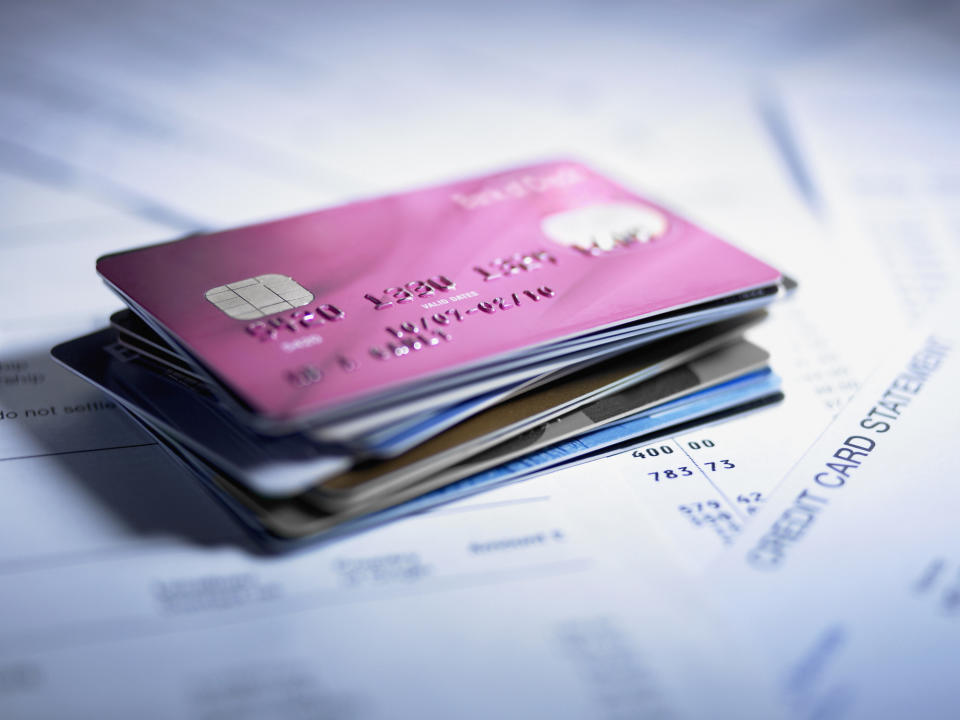Credit card sign-up bonuses have increased, but so have annual fees
Credit cards are a more popular than ever, with issuers offering big sign-up bonuses to lure new customers. This strategy isn’t new, but recent data shows that credit card companies have doubled down on it over the decade.
According to a recent report by MagnifyMoney, the average introductory bonus offered by credit cards has more than doubled in the last decade, going from 16,050 points in 2008 to 40,556 points in 2018.
The site looked at more than 90 introductory bonus point offers from each of the five largest credit card issuers for personal credit cards in five-year increments, February 2018, 2013 and 2008.
When it comes to hotel-branded credit cards, the average introductory offer has jumped from 21,250 points in 2008 to a whopping 60,000 points in 2018. The bonus offer for airline-branded cards has increased from 15,000 points to 37,059 points.
The biggest increase, however, is on cash for travel cards. This refers to cards with travel rewards that you can use on any airline, like the Chase Sapphire Preferred which gives a 50,000 sign-up bonus, worth $750 in travel booked through Chase. Looking at the data, MagnifyMoney concluded that the introductory bonus offers on these cards has tripled, from 10,000 points in 2008 to 30,455 in 2018, making them the credit card with the highest growth rate.

The reason behind the increased offerings is simple: miles and points have become big business. In a 2017 Bloomberg article, Joseph DeNardi, a senior airline analyst with Stifel Financial, said airlines make millions from selling miles to credit card companies.
“Airlines are earning upwards of 50% of [income] from selling miles to a credit card company, which we believe is a great business to be in,” he said.
After buying miles, credit card companies then offer sign-up bonuses to new customers that can be cashed in for free travel and other rewards.
Don’t believe the hype
At first glance, more points sound good for consumers. By accumulating points and miles, cardholders are able to earn free travel, class upgrades and a higher status. But these perks come at a cost.
In addition to the increased bonus offers, MagnifyMoney found that the average annual credit card fee has jumped from $74 in 2008 to $120 in 2018 – or 62%. When you look at the cards offering the most travel perks, like the American Express Platinum or the Chase Sapphire Reserve (which famously offered new users a 100,000 point sign-up bonus), they also carry the steepest annual fees. Both cards charge users $450 a year, and while a $300 annual travel credit could make that fee feel smaller, users have to stay diligent to ensure they’re reaping the full benefits.
Consumers should also be careful not to overcommit. Most of these cards require users to spend $3,000 to $4,000 in three or four months in order to earn the sign-up bonus. If that doesn’t fit into your budget, it’s possible to accumulate debt just to earn a discounted flight.
On top of that, interest rates have creeping higher. The average credit card APR was 14.96% in 2015 and jumped to 16.18% by the end of 2017, according to CreditCards.com. As of March 21, the average APR has risen to 16.84%, according to Bankrate.
All of this means that consumers need to do their research before opening a new credit card. Make sure you know the card’s APR, annual fees, and penalties for things like late payments. Don’t get sucked in by an enticing sign-up bonus and walk into a situation you can’t really afford.
Brittany is reporter at Yahoo Finance. Follow her on Twitter @bjonescooper.
Credit card debt has now reached pre-recession levels
Store credit cards could land Americans in debt
As medical costs overwhelm, more people turn to crowdfunding sites for help

